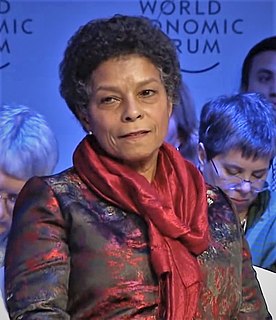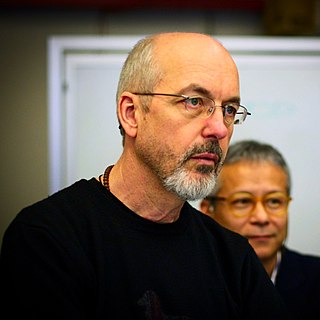A Quote by Anne Wojcicki
It's crazy to me that in this world of electronic medical records Walmart has so much information about how we shop, but no one has that information about our health. Why can't my doctor say, 'Wow, Anne, based on your lifestyle and behavior, you're five years from being diabetic.' But I can go to Target, and they know exactly what I'm going to buy.
Related Quotes
In the case of health information, I spent twenty-five years practicing medicine, and I was all too familiar with the fact that information wasn't properly shared, so I wouldn't know exactly what was in the hospital records; patients would be lost. Computerization gives the opportunity to actually get the information much better.
On the information technology side, health care is still behind other industries. There needs to be a real push to create better electronic health records, more inter-operability amongst various types of electronic systems and cybersecurity is becoming a huge deal in in health care. Health care records are highly sought after by virtue of the fact that not only do you have somebody's person financial information, you also have their person medical information.
What I mean by it, and roughly what most biologists who talk about culture mean by it, is either behavior itself, or information that leads to behavior. Information that is picked up through social learning - so, from being with, watching, being taught by others. It's a way that individuals behave or get information about how they will behave that comes directly from the behavior of others.
We see it in attempts on Capitol Hill to impose gag rules on rules on doctors on what they can say to their patients about family planning. And we certainly see it now with an effort by the government to tap our phones; invade our medical records, credit information, library records and the most sensitive personal information in the name of national security.
Electronic medical records are, in a lot of ways, I think the aspect of technology that is going to revolutionize the way we deliver care. And it's not just that we will be able to collect information, it's that everyone involved in the healthcare enterprise will be able to use that information more effectively.
Fifty years from now I don't think optical realism is going to be an issue in visual communication any more. Experience is so much richer than light falling on your retina. You embody a microcosm of reality when you walk down the street - your memories, your varying degrees of awareness of what's going on around you, everything we could call the contextualizing information. Representing that information is going to be the main issue in the years ahead - how the world meets the mind, not the eye.
We have a way of dealing with information that has sort of personal - personally identifying information in it. But there are legitimate secrets - you know, your records with your doctor; that's a legitimate secret. But we deal with whistleblowers that are coming forward that are really sort of well motivated.
I don't know what to say about Asians. I think everyone is "racist," to differing degrees, in that everyone's brain will automatically associate information with other information, based on the information they are looking at (for example skin color, bone structure), but I think focusing on race in any manner that isn't neutral or self-aware probably increases racism.





































